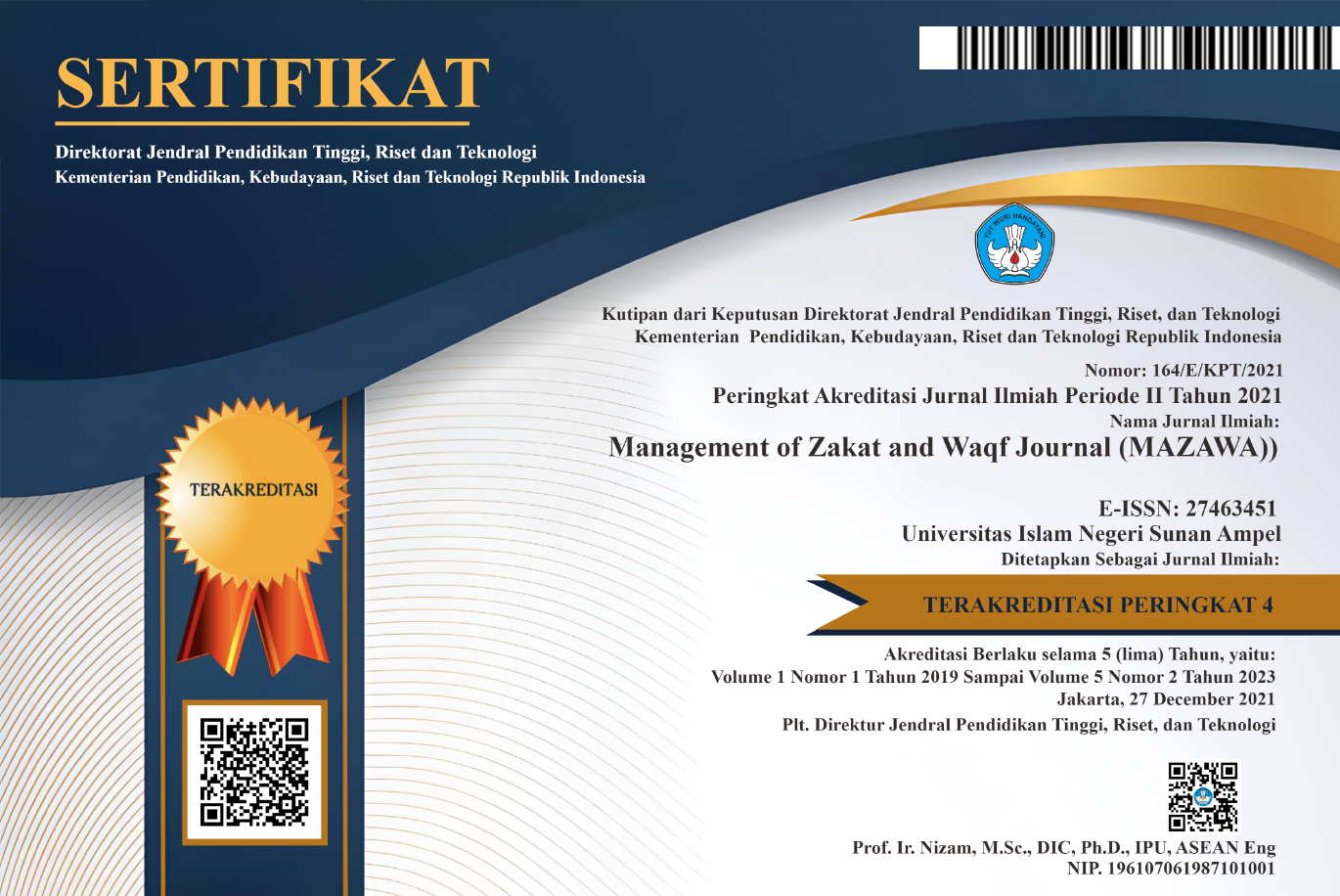Efektifitas Sertifikasi Tanah Wakaf di Indonesia: Analisis Komparatif Fikih dan Hukum Positif
DOI:
https://doi.org/10.15642/mzw.2021.2.2.136-152Keywords:
waqf land; certificate; legal effectivenessAbstract
This research is a literature study that is supported by the evidence of field research on the status of uncertified waqf land. The consensus on the legal status of the waqf land according to both fiqh and adat in the community is still being contested. Some say that the donated land does not need to be certified because it deals with issues of worshiping God, while others say that the donated land must be certified. This phenomenon has brought society into a dilemma, eventually leading to stagnation. Therefore, this study seeks to answer two questions, namely; 1) what is the legal status of the waqf land that does not have a certificate? 2) How is the legal protection for the waqf land that does not have a certificate? This research is a normative juridical research which aims to study the principles and principles that exist in the science of law. The information used consists of primary, secondary and tertiary legal materials. The results of this research are to show that the status of waqf land that does not have a certificate is legal in Islamic law and the person who donates will also get reward as long as it fulfills the principles and provisions set out in sharia. On the other hand, in the statutory law, the status of waqf land which does not have a certificate does not have the power in the waqf land law that Nazhir recommends to certify the donated land.
Downloads
Downloads
Published
How to Cite
Issue
Section
License
Copyright (c) 2021 Pranadiana Marginingrum, Affan Riadi

This work is licensed under a Creative Commons Attribution-NonCommercial-ShareAlike 4.0 International License.





